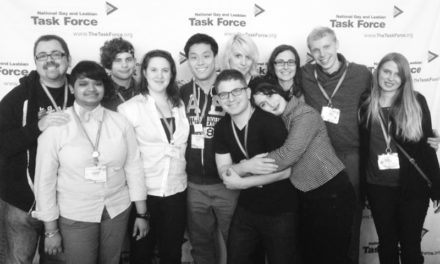The Emory Wheel was named after an emery wheel, a sharpening device. In symbolic spirit, the historical purpose of this paper is to sharpen the knowledge of the Emory University community.
As a new semester commences, and in the spirit of our namesake, we want to set intentions for both the Editorial Board and our hopes for the Wheel at large. We hope that as students, faculty and staff read this piece, they find insight into the Board’s process of generating well-informed, fact-based opinion articles.
Who we are
This Board is composed of a diverse group of writers within the Wheel’s opinion section tasked with providing the Emory student body with thought-provoking dialogue on issues concerning our local community and the broader world. Although the articles written by the Board contain opinionated arguments, our stances are grounded in fact, thoroughly sourced both in online and paper versions.
This upcoming semester, the Board is dedicating itself to taking stronger, more nuanced stances in its articles, acknowledging that we have curtailed the strength of our articles to avoid backlash in the past. Our audience can expect us to be bolder while upholding journalistic integrity.
We will write about major events going on in the world and on campus that are important to students, whether we receive pushback or not. If any reader disagrees with the argument of an editorial, they are welcome to submit a Letter to the Editor. Remember that the Wheel encourages anyone to write. If you feel that your viewpoint is not being represented, feel free to submit a piece. All opinions are welcome as long as they use facts to support their conclusions.
We also commit to sharing resources to promote involvement in the Atlanta community. Oftentimes, we discuss large political, social or economic failures that can leave the reader feeling hopeless. In our editorials, we strive to increase the visibility of local organizations that advocate for issues endorsed by the Board.
We seek to incorporate the views of individuals on Emory’s campus — whether that be professors or students. We seek to promote resources as a means of creating dialogue on a campus dedicated to change and knowledge.
Additionally, we recognize that the Board has not covered Oxford College campus events to the same degree as the Atlanta campus. As the Wheel serves both campuses, we commit to paying more attention to the students and events on the Oxford campus.
Maintaining integrity
Overall, we would like to clarify key rules that are upheld by the Board to ensure our publication is both reliable and credible. First, writers for the news section are not allowed to write for the opinion section and thus not allowed to be on the Board. The news section of the paper consists of impartial reporting on events, while the opinion section makes arguments about these events.
Staff writers also recuse themselves in cases of conflicts of interest. For instance, if a board member is a member of the Student Government Association (SGA), they are not eligible to write or edit an article about who they believe should be the next SGA president. This is not only true for SGA but for all other organizations, clubs, Greek life or associations that writers have.
The Board will continue to uphold the highest level of journalistic integrity.
Liberal arts at Emory
Last year, Emory announced its commitment to expanding its humanities faculty, projecting up to 30 new hires within the next three to four years. During a so-called “humanities crisis” where institutions nationwide are slashing funding and departments such as musicology, history and comparative literature, the Board is impressed by Emory’s commitment to bolstering this critical aspect of its liberal arts curriculum.
The humanities are not dead, but rather disconcertingly undervalued. In an increasingly-complex, rapidly-changing society, fields that center critical examination of social structures are more critical than ever. Furthermore, given the volatility of the economy, and subsequently the job market, humanities-developed skills, such as critical analysis, creative thinking and effective communication are in high demand.
Fields like philosophy, while sometimes considered pedantic and ineffectual, have been at the epicenter of nearly every major social movement from the Enlightenment to modern feminism.
Frameworks for understanding and interacting with the world, such as critical race theory, have developed within the humanities and expanded to shape the larger cultural climate, both within and outside of academia.Fundamentally, the intersectional inquiry at the core of the humanities is essential to all subjects. As STEM programs expand, so do fields like artificial intelligence and bioethics.
In order to fulfill Emory’s declared mission to “create, preserve, teach, and apply knowledge in the service of humanity,” we cannot neglect the fields that seek to understand the core of the human experience.
We hope that Emory will remain steadfast in its commitment to growing the humanities and capitalize on opportunities for interdisciplinary overlap with other fields.
Centering of the reader
The Board’s content is constructed with our audience in mind. What sets our content apart from other newspapers is that the events we write about, as large as global conflicts or as local as campus unions, are told through the lens of members of the Emory community.
Our goal is to represent the University’s student body, sharing our collective opinion as a means of provoking dialogue on campus.
We also hope to encourage Emory students to stay informed about campus events. Students and readers have a role to play in not only learning about the events going on in the world but also in actively preserving and protecting the causes that interest them.
In conclusion, many changes are underway at Emory this year, and the Wheel is no exception.
We hope that this article will help to set standards for the growth of our Board over the course of the next semester, and offer our readers insight into our writing and decision-making processes.
We will carry this increased transparency into our coverage of important events in the Emory community, upholding our commitment to being a reliable source of nuanced discussion.
The above editorial represents the majority opinion of the Wheel’s Editorial Board. The Board is composed of Marc Goedemans, Sophia Hoar, Carson Kindred, Justin Leach, Eliana Liporace, Lola McGuire, Saanvi Nayar, Sara Pérez, Maddy Prucha, Jaanaki Radhakrishnan and Ilka Tona.
The Editorial Board is the official voice of the Emory Wheel and is editorially separate from the Wheel's board of editors.





